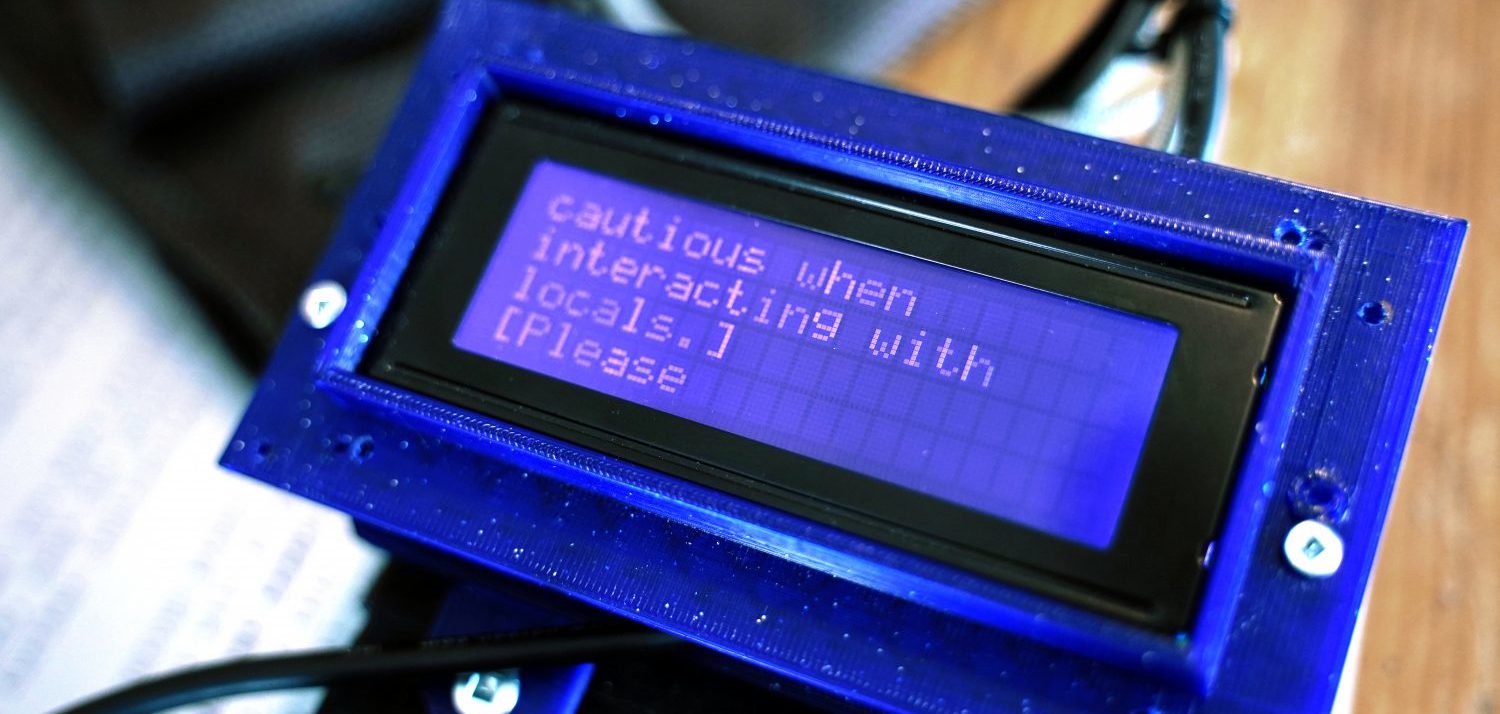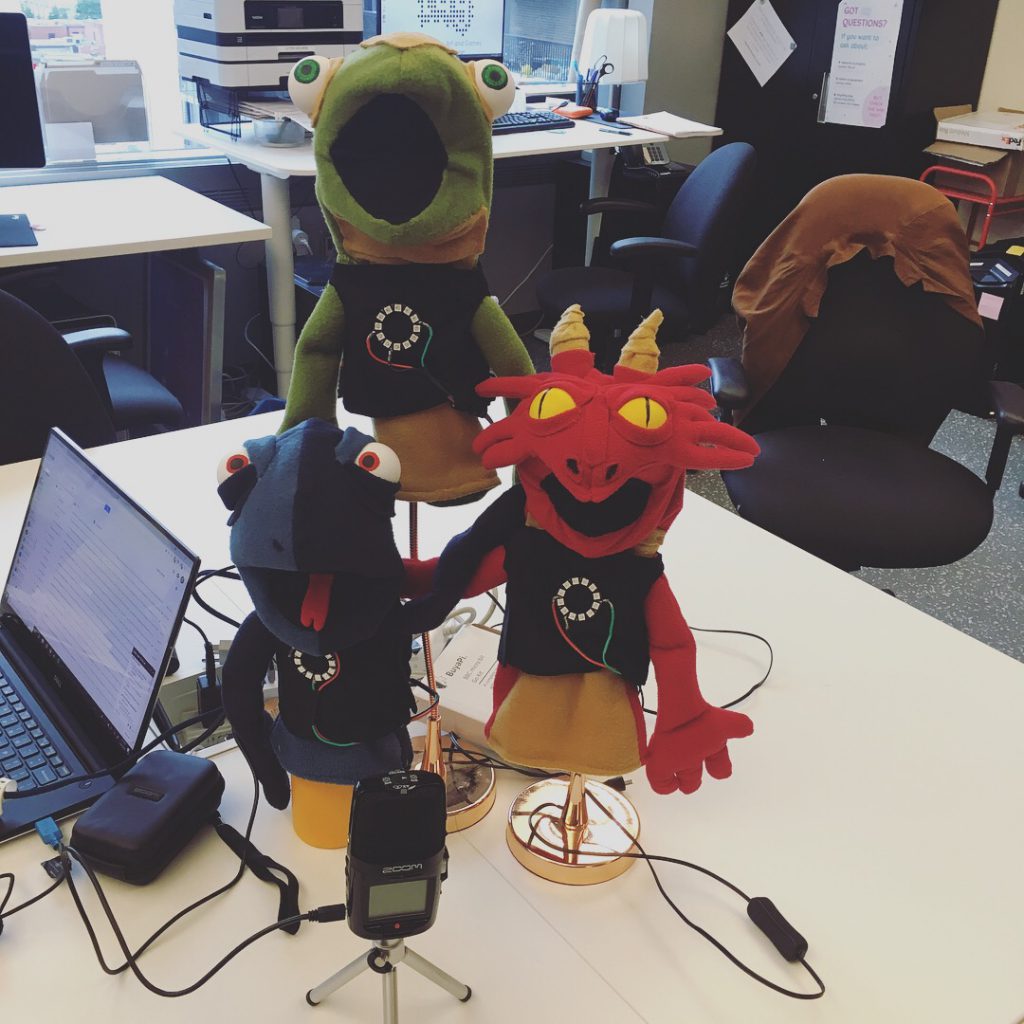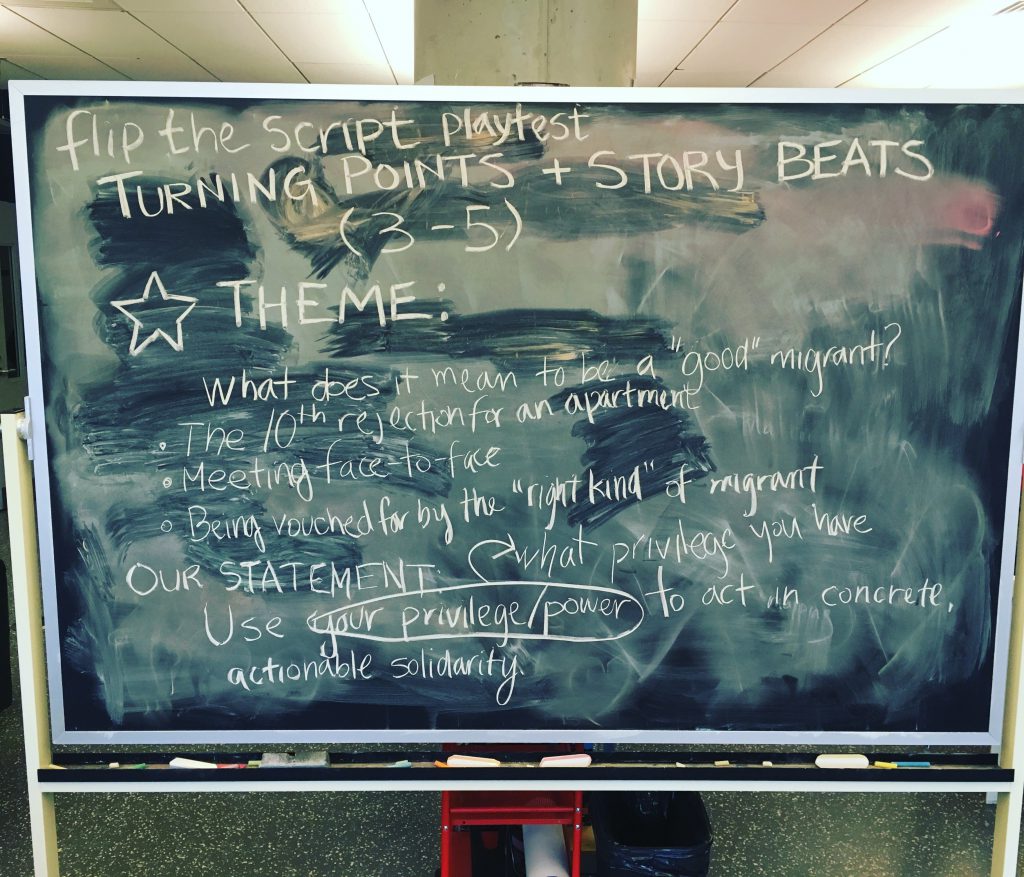Since my last post, I’ve been doing a lot of reading in order to revise an article for a journal. I also wrote a draft of the full rules for Flip the Script! The week before last, I got to talk about them with the Reflective Games Group, and run through some of the rules, which led me to rewrite my section on intersectionality. This week, we did a full playtest (which I recorded the audio for).
The playtest went well, on the whole, but I was astounded to find that the run time was two hours, and I will have to find a way to streamline that amount of time in the future. It’s just too long to reasonably expect most festival players to commit to.
The major revisions that I plan to make other than trying to streamline the introductory parts is to try to use the LED interfaces in a different way. Squinky and I had criticized another puppet interface for just being buttons on the puppets’ heads that did things in game, and it’s true that this interface isn’t as embedded into the puppets as I originally envisioned. The truth is that I didn’t want to embed the electronics in places where I couldn’t easily access them, in the end, and so we’ve got this current version where the electronics aren’t even really sewn onto the puppets. And I’ve made my peace with that — it’s a different game than what I thought it would be in terms of its use of technology.
But, at the moment, there was very little reason for players to use the technology, and players rightly suggested that maybe offloading more onto the tech and getting it more involved would do good things for the game. It was also suggested that maybe I could have my own microbit to send signals, especially if the meaning of those signals changed (like perhaps the players could switch roles, or a new character is introduced — maybe I could make each of these into a more formalized rule for each round, sort of like the way that the games change in “Whose Line Is It Anyway?” — I don’t know why that specific reference comes to mind except that it’s the same general concept each time, with specific rules for each individual game/scene. Another interesting idea that came up was what it would be like to play my other nanolarps using puppets instead of having the players play themselves.
It also occurs to me that I wound up using a blackboard to record notes from the session where all the players could see them this time, and that I will want to do that in the future. That means I’ll have to get a carry-on sized whiteboard (possibly at the dollar store, possibly a picture frame with plastic or glass in the frame?) to do so in the future.
The subject that we wound up discussing in this game was the concept of the “good” migrant, explicitly asking “what does it mean to be a ‘good’ migrant?” To contextualize this, we were problematizing the idea of a good migrant while also recognizing that many nationalists and other people have expectations of what good migrants are, even if those expectations might be subconscious. We unpacked those in the context of apartment hunting.
I feel good about the playtesting, though, again, astounded that it took so long.
This is the statement that the players and I jointly came up with for our playthrough to release out into the world:
“Use what privilege you have to act in concrete, actionable solidarity.”


